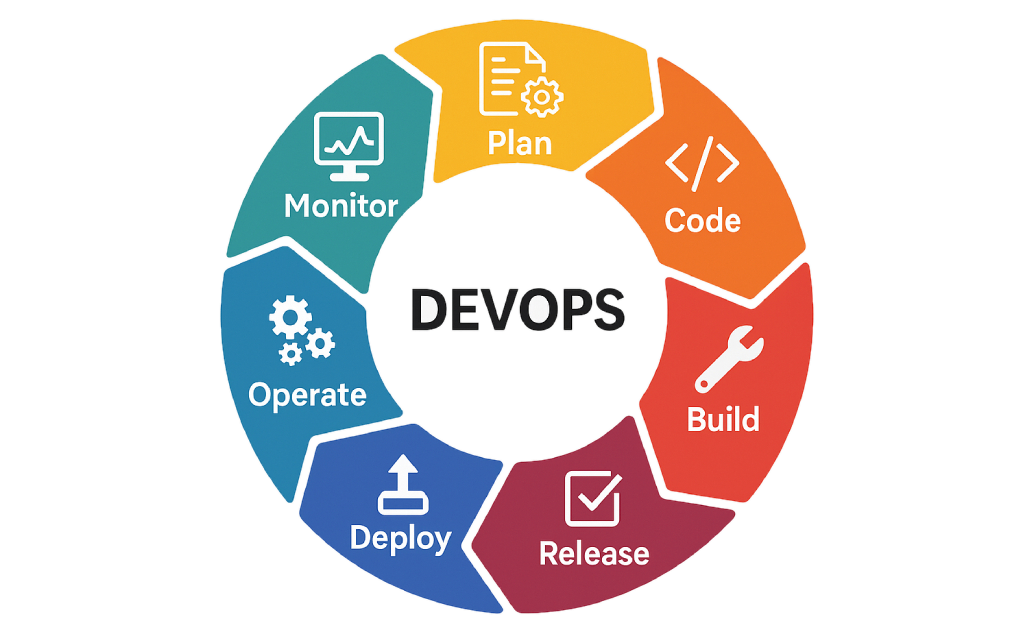Who Is a DevOps Engineer? Understanding the Role Behind Smooth Software Delivery
Who Is a DevOps Engineer? Understanding the Role Behind Smooth Software Delivery In today’s world of fast-paced development and continuous software delivery, one term consistently shows up in job listings and tech conversations: DevOps Engineer. But what exactly does a DevOps engineer do? Are they developers? System administrators? Cloud architects? Actually, the answer is a little bit of all three — and more. What Is DevOps? Before diving into the role, let’s understand the concept itself. DevOps combines two words: Development and Operations. It’s not just a tool or job title — rather, it’s a culture and practice that promotes collaboration between developers (who write the code) and operations teams (who deploy and manage it). Click here to read the article What is DevOps So, Who Is a DevOps Engineer? A DevOps Engineer works at the intersection of development and IT operations. Their job typically includes: Automating the software delivery process Ensuring stability and scalability of infrastructure Collaborating across teams to deliver features quickly Integrating tools, testing, security, and monitoring into every stage of development In short, this role builds pipelines, writes scripts, and designs systems so teams can ship software frequently, safely, and automatically. Key Responsibilities of a DevOps Engineer Here’s what a typical day might look like: Responsibility Description CI/CD Pipeline Setup Configure automated build, test, and deployment pipelines. Infrastructure as Code (IaC) Manage infrastructure using tools like Terraform. Cloud Infrastructure Deploy and manage on AWS, Azure, or GCP. Containerization & Orchestration Use Docker and Kubernetes for consistency. Monitoring & Logging Implement tools like Prometheus or Datadog. Security (DevSecOps) Embed security checks into CI/CD pipelines. Collaboration Work with developers, QA, and sysadmins to streamline delivery. Skills a DevOps Engineer Needs Skill Area Examples Scripting Bash, Python CI/CD Tools Jenkins, GitHub Actions Cloud Platforms AWS, Azure, GCP Containers Docker, Kubernetes IaC Tools Terraform, Ansible Monitoring Prometheus, Grafana Version Control Git, GitHub OS Linux, Unix DevOps in Action: A Real-World Example Picture a team working on a mobile app. Without modern practices: Code is manually tested and deployed. A single production bug can cause major downtime. Deployments happen once every few weeks. On the other hand, with DevOps: Every change is automatically tested. Deployment is automated and consistent. Failures are detected early and rolled back safely. That smooth, safe flow? It’s powered by DevOps engineers. Why DevOps Engineers Are in Demand Today, more businesses are moving to the cloud. Furthermore, fast delivery is now a competitive advantage. As a result, automation, cost-efficiency, and built-in security have become critical. This explains why DevOps engineers are among the highest-paid and most sought-after professionals in tech today. Want to Become a DevOps Engineer? Here’s a basic roadmap to get started: Learn Linux fundamentals. Master Git and version control. Practice Bash or Python scripting. Explore CI/CD tools. Get familiar with Docker and Kubernetes. Work with cloud services like AWS or GCP. Use Terraform to automate infrastructure. Study monitoring and DevSecOps principles. Final Thoughts A DevOps Engineer isn’t just tech-savvy — they enable speed, quality, and stability in modern software delivery. Whether you’re at a startup or in a large enterprise, having skilled professionals in this role can make all the difference. Ultimately, DevOps is more than a job. It’s a mindset that transforms chaos into confidence. Reads also: What Is DevOps? A Simple Explanation for Developers, Teams & Startups Choosing the Right Cloud Service: A Developer’s Guide to AWS, Azure, GCP & More External Resources: Microsoft Learn: DevOps Overview MGoogle Cloud: DevOps Solution DevOps at AWS (Official Guide)
Who Is a DevOps Engineer? Understanding the Role Behind Smooth Software Delivery Read More »

